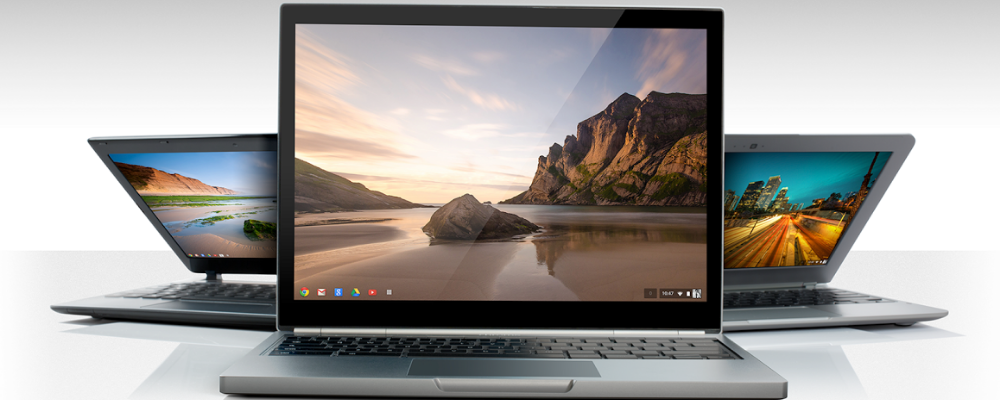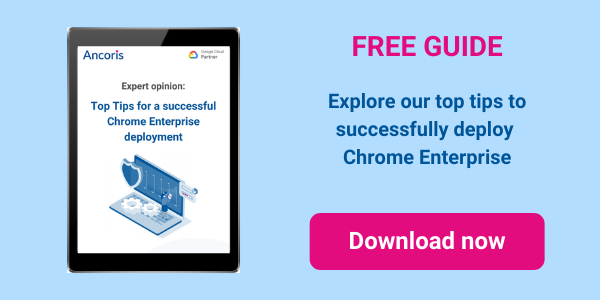Windows PCs have been the default device for business users for so long that it’s not surprising many CIOs are nervous about switching to a different platform for user devices. Chromebooks may have been a hit in the education sector, but are they really ready for the corporate world?
Here are 7 facts that demonstrate Chrome Enterprise is the right solution for businesses, right now.
- Chromebooks are built for enterprise users. Every major manufacturer is producing Chrome devices, in a wide range of form factors to suit all kinds of use cases, and with a typical battery life of more than 10 hours.
- Chromebooks work offline. Chromebooks come with everything you need to work without the internet, including on-device storage and an an ecosystem of Android apps that will almost all work offline. Of course, most apps work better when you’re online, but not having an internet connection is no barrier to being productive.
- Chrome OS automatically updates every 6 weeks — without any downtime. All updates are delivered from the cloud, with nothing for your in-house IT team to do, and are invisible to users. That’s because Chromebooks hold two copies of Chrome OS. While you’re using one to work, the other is being updated. Next time you log in, you’ll start using the mostly recently updated version, while the other one gets updated. This also means everyone is always running on the same version.
- Chromebooks don’t need to antivirus to be secure. Chromebooks are designed to be very hard to compromise. A verified boot process checks every time you boot up that the operating system looks right — and defaults to the other copy of the OS if something is off. Installed apps and extensions simply can’t modify the OS and they're strictly sandboxed to limit the extent of any attack.
- Chromebooks provide enterprise-grade management. Chrome Enterprise allows you to set more than 200 policies to ensure user compliance — and do it all from any browser on any device at any time. You can disable or lock down devices remotely if they're lost or stolen. You can also control which apps users can install and which apps they see in your enterprise Play store. And you don’t have to worry about scalability: Chrome Enterprise is currently supporting domains with more than 100,000 devices.
- Chromebooks integrate with your legacy stack. Chrome Enterprise supports Active Directory and allows you to access Microsoft Office through Office 365 and Android apps. You can use on-premise virtualisation to access enterprise legacy systems and Chrome OS will run native Linux apps as well as web and Android apps. You can even bring your existing VPNs and SSO to Chrome OS.
- Chromebooks are now the preferred platform for businesses. Sales of Chrome OS devices are rising nearly 20 times faster than sales of Windows PCs. As companies move to the cloud, they’re looking for secure endpoint devices that are fast, offer a low TCO and can be shared by many users — that means Chrome Enterprise.
If you’d like to find out more about how Chrome Enterprise can make a difference in your business, come and talk to the experts in our Chrome team.

